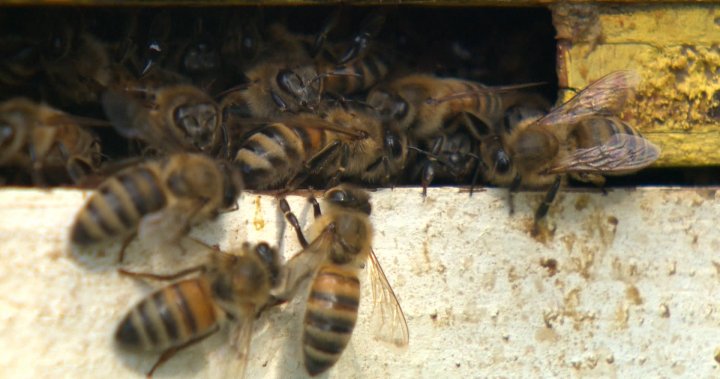
USask hires pollinator health researcher to see what challenges honey bees face
Global News
They may be small, but bees play a big role in the ecosystem. There's a new ‘pollinator health research chair’ and she hopes her work makes change on global food security.
The world is filled with busy bees working hard collecting pollen, and Dr. Sarah Wood decided to research their response to disease, pesticides, and how they support agricultural crops.
Dr. Wood is the new University of Saskatchewan Research Chair position at the Western College of Veterinary Medicine.
She plans to focus on the health of pollinators that play an important role in food production and agricultural sustainability.
“Honey bees alone are pollinating two-thirds of our leading food crops in the world. They’re contributing $5.5 billion worth of pollination services to Canadian agriculture every year, as well as providing vital services to our ecosystems,” said Dr. Wood.
Through their daily work, pollinators enable plants to successfully grow and produce crops. Among all pollinators, honey bees have the greatest impact on global crop production.
One particular disease they’ve been researching is called European Foulbrood and it’s a bacterial illness.
“We’re learning how the disease can spread between the colony’s larva and adult bees, and we’re also learning how we can control it, using antibiotics which veterinarians prescribe to bee keepers to treat affected colonies,” said Dr. Wood.
Funding is what made Dr. Woods’ position available, through a five-year funding commitment from:












